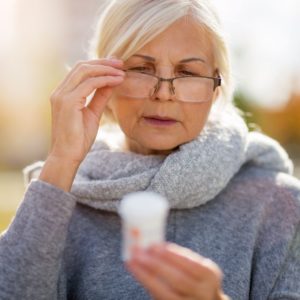Age-Related Eye Conditions Don’t Have to be a Guarantee
- Posted on: Jun 15 2019

There is No Substitute for Professional Care
We could offer dozens of individual steps you can take to support vision and eye health, but none are as valuable as this: see your eye doctor.
An eye exam is more than covering one eye and reading letters on a board or screen. A thorough eye exam is intended to evaluate the various aspects of the eye that are involved in creating a clear visual image. An exam should include dilation. Without this step, the doctor’s observation of the internal areas of the eye is limited. Dilation does not hurt. It is the widening of your pupils. Your pupils naturally dilate when you go into a dark room or when you go into the house from outside. Just like this does not hurt in those instances, it will not hurt in your doctor’s office.
When your doctor dilates your eyes, they can see your lens, cornea, blood vessels, retina, macula, and optic nerve. Abnormalities in these areas indicate a risk for future eye disease and, in some cases, can be treated before vision is affected; but only when detected early.
Living a Healthy-Eye Lifestyle:
- Nourish your eyes with food. Just like green leafy vegetables are good for your heart and your skin, they are good for your eyes. Other foods that provide specific nutrients for eye health include sweet potatoes, salmon, chia seeds, blueberries, and carrots.
- Work out for eye health. We usually associate exercise with weight management and heart health. The eyes also benefit from physical activity because exercise lowers cholesterol and blood pressure, two factors that contribute to age-related eye disease.
- Block the sun. Sunglasses are not a mere fashion statement. Multiple studies have proven the UV light degrades tissues all over the body, including the structures of the eye. Wearing sunglasses is an easy way to decrease the risk of cataracts.
- Don’t smoke. We know smoking degrades the body in so many ways. Eye health is one more to throw into the ring. People who smoke have a significantly higher risk of age-related macular degeneration, cataracts, dry eye, diabetic retinopathy, and other diseases that threaten quality of life.
Talk with your Chester, NJ eye doctor about how you can preserve your vision at every age. Schedule a visit with us at 908.879.7297.
Posted in: Eye Conditions, Macular Degeneration


